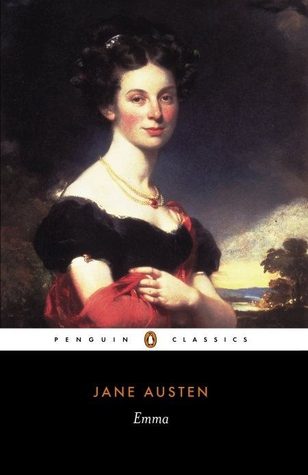Title: Emma
Author: Jane Austen
First published January 1, 1815
414 pages, Paperback
ISBN: 9780451526274 (ISBN10: 0451526279)
Rating: 4.04
Overview
“Emma” by Jane Austen, originally published in 1816, showcases the author’s mastery of the art of storytelling. The novel introduces two unforgettable characters, the peculiar Mr. Woodhouse and the tiresome Miss Bates, who will leave a lasting impression on readers.
However, it is the protagonist, Emma, who steals the show with her sharp wit, vivid imagination, and flawed perception of reality. Despite Austen’s forewarning that Emma might not be a likable character, readers have been captivated by her charm and relatable struggles for centuries.
Join Emma on her journey of self-discovery and love in this timeless classic.
About the Author
Jane Austen, a renowned English novelist, is celebrated for her romantic fiction that depicts the lives of the landed gentry. Her ability to provide realistic portrayals of society and offer critical social commentary has made her an important figure in English literature.
Austen was raised in a tight-knit family situated on the lower end of the English landed gentry. She received most of her education from her father and older brothers, as well as from reading on her own.
The unwavering support of her family played an essential role in her growth as a professional writer. Austen’s artistic development began in her teenage years and continued until she was around 35 years old.
Over this period, she experimented with various literary forms, including the epistolary novel, which she eventually abandoned. She wrote three significant novels and began a fourth, revising them extensively, before achieving success as a published writer from 1811 until 1816 with the release of “Sense and Sensibility,” “Pride and Prejudice,” “Mansfield Park,” and “Emma.” Austen went on to write two more novels, “Persuasion” and “Northanger Abbey,” both published posthumously in 1818.
She started a third novel, which was eventually titled “Sanditon,” but sadly passed away before she could finish it.
Austen’s works criticize the novels of sensibility from the second half of the 18th century and mark the transition to 19th-century realism. Her stories, though fundamentally humorous, highlight the significance of marriage for women to secure their social standing and economic security.
Her work did not gain much personal recognition or positive reviews during her lifetime, but her nephew’s publication of “A Memoir of Jane Austen” in 1869 introduced her to a broader audience, and by the 1940s, she was widely accepted in academia as a great English writer. In the second half of the 20th century, Austen scholarship proliferated, and a fan culture of “Janeites” emerged.
Editoral Review
Emma by Jane Austen is a classic novel that was first published on January 1, 1815. Austen is known for her witty and satirical writing style, which is evident in this novel.
Emma is a prime example of the Regency era literature, which was characterized by a focus on societal norms, manners, and social relationships.
The novel revolves around the life of Emma Woodhouse, a young woman who lives in a small English village called Highbury. Emma is beautiful, intelligent, and wealthy, but she is also arrogant and self-centered.
She takes it upon herself to meddle in the romantic affairs of those around her, believing that she knows what is best for them. Emma’s actions lead to several misunderstandings and complications, and she eventually learns some valuable lessons about humility, kindness, and the consequences of her actions.
Austen’s writing style is elegant and refined, and she uses humor and irony to highlight the flaws of her characters. The plot of the novel is well-structured, with several subplots that add depth to the story.
The characters are well-developed, with distinct personalities and motives. The setting of the novel is also important, as it reflects the societal norms and expectations of the Regency era.
One of the strengths of the novel is its portrayal of the societal expectations and gender roles of the time. Austen’s commentary on the limitations placed on women is particularly noteworthy.
She uses the character of Emma to explore the constraints of marriage and social class, as well as the impact of social hierarchy on human relationships.
However, some readers may find the novel slow-paced, as it focuses on the everyday lives and interactions of the characters rather than dramatic events. Additionally, the novel’s happy ending may seem unrealistic to some, as it ties up all loose ends and resolves all conflicts.
Overall, Emma is a beautifully written novel that offers a glimpse into the Regency era society. It is a must-read for fans of classic literature, and its themes of love, friendship, and self-discovery resonate even today.
The novel receives a rating of 4.5 out of 5, due to its excellent writing, well-developed characters, and insightful commentary on societal norms and expectations.



